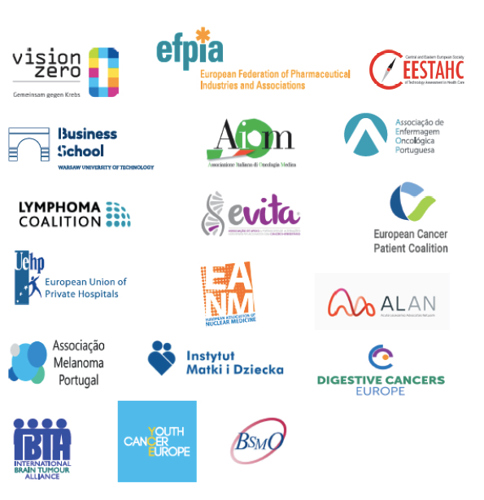Keep the progress on cancer care: New Report draws lessons from COVID-19
The COVID-19 pandemic has come at a time where great progress had been made in cancer care: although more people are being diagnosed with cancer, improvements in services and treatments have led to better outcomes. The number of cancer deaths has increased at a much slower pace (20%) than that of cancer cases (50%).[1]
Every day counts for people living with cancer. Therefore, the pandemic will have a profound effect on patient outcomes if no action is taken to make up lost ground in screening, treatment and surgery, according to a new report, The Impact of COVID-19 on Patient Access to Cancer Care in Europe. For example, in breast cancer, an eight-week delay in surgery increases the risk of death by 17%, while a 12-week delay increases the risk by 26%.
The publication was commissioned to Vintura by the EFPIA Oncology Platform and developed with a wide range of stakeholders, including patient organisations, healthcare providers, payers, HTA bodies and academic institutions. It draws on a review of grey and academic literature and is a follow-up to Every Day Counts – Improving Time to Patient Access to Innovative Oncology Therapies in Europe which was published last July.
Learning lessons from adversity
The report finds that COVID-19 has had an impact on every patient access milestone: clinical trials have been delayed or postponed, HTA and reimbursement decisions have been put on hold, and cancer diagnosis dropped by 50% in some countries in March 2020 compared to the previous year. Treatment and follow-up were severely impeded due to the risk of hospital visits, reduced availability of healthcare professionals, and fewer resources for blood transfusion and surgical care. Patients themselves were less prone to visit hospitals for their cancer care.
For cancer patients, this has meant additional hurdles to accessing care, on top of factors that were already delaying patient access in oncology prior to the pandemic.
The risk of further disruptions to health service delivery remains, due to SARS-CoV-2 mutations or future pandemics, along with the growing shortage of health personal needed to care for Europe’s ageing population. The challenge is to look beyond the current crisis and learn from the COVID-19 pandemic to make healthcare systems fit for the future.
Despite the challenges, there have been some positive features of Europe’s response to the pandemic, including the adoption of digital health and greater agility in the development and approval of innovative solutions. Stakeholders have identified six recommendations for the future:
6 ways to improve access to cancer care
- Clear the cancer backlog now, using innovative practices which emerged during the pandemic
- Maintain the proven agility of R&D and Marketing Authorisation processes
- Continue the intensified European collaboration in clinical assessment to use HTA resources more efficiently after the pandemic
- Continue the adoption of digital health to increase remote care and use healthcare resources more efficiently after the pandemic
- Maintain and build adaptive surge capacity to be ready for future disruptions to cancer care
- Safeguard cancer budgets as a critical enabler for improving continuity, efficiency, and sustainability of cancer care
With the publication of Europe’s Beating Cancer Plan and a fresh focus on the role that EU institutions can play in protecting and advancing the health of citizens, it is vital that the oncology community build on the lessons learned from this crisis by investing in access to innovation. Together we can build back better.
[1] Hofmarcher, T. et al. (2019) Comparator Report on Cancer in Europe 2019, IHE Report 2019:7. IHE: Lund, Sweden